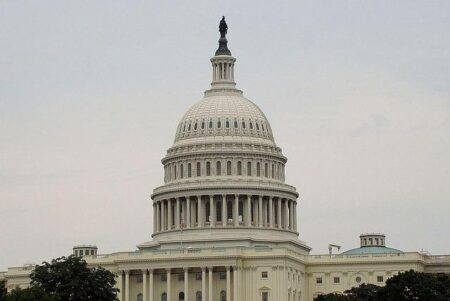Las Vegas Shooting Survivors Respond to Supreme Court’s Expanded Gun Rights Ruling
Emotional Impact on Survivors of the 2017 Tragedy
Those who lived through the 2017 Las Vegas mass shooting have voiced profound distress and disbelief following the Supreme Court’s recent decision broadening Second Amendment protections. This landmark ruling, which enhances individual gun ownership rights, has stirred fears among survivors that it may weaken critical safeguards designed to prevent future mass shootings. One survivor reflected, “This verdict feels like a step backward for sensible laws that keep our communities safe,” underscoring the emotional weight of revisiting the tragedy amid shifting legal landscapes.
Both victims and advocates emphasize the necessity of crafting policies that respect constitutional freedoms while prioritizing public safety. Key concerns raised include:
- The possibility of relaxed regulations on carrying firearms in public venues
- The difficulty survivors face in achieving meaningful legislative reform amid evolving judicial interpretations
- The importance of sustaining open conversations on preventing gun violence
| Group | Reaction | Main Concern |
|---|---|---|
| Las Vegas Survivors | Shocked | Threat to safety reforms |
| Gun Reform Advocates | Disheartened | Broader firearm access |
| Second Amendment Defenders | Encouraged | Preservation of individual rights |
Legal Perspectives on Nationwide Gun Control Challenges
Legal analysts remain divided over the Supreme Court’s ruling and its far-reaching consequences for firearm regulations across the country. While some interpret the decision as a robust affirmation of constitutional gun rights, others caution it may severely limit the authority of state and municipal governments to enforce existing firearm restrictions. This judicial stance elevates individual gun ownership rights, potentially invalidating many gun safety laws previously upheld as constitutional.
Experts highlight several critical implications:
- Preemption of Local Regulations: State and local firearm bans could be challenged if they conflict with the Supreme Court’s expansive interpretation.
- Background Check Enforcement: Expanded background check requirements may face constitutional scrutiny, complicating their implementation.
- Restrictions in Sensitive Areas: Laws limiting firearm possession in schools, government buildings, and other sensitive locations might be curtailed.
- Increased Legal Disputes: Both gun rights and gun control groups are expected to initiate further litigation to define the boundaries of permissible regulation.
| State | Existing Regulation | Potential Effect of Ruling |
|---|---|---|
| California | Ban on assault-style weapons | Likely to face significant legal challenges |
| New York | Strict permit requirements | Enforcement may become more complex |
| Texas | Minimal firearm restrictions | Unlikely to see major changes |
Community Leaders Urge Strengthened Gun Safety Measures
In response to the Supreme Court’s ruling, community advocates and survivors of gun violence are calling for renewed and intensified efforts to enhance firearm regulations. Grassroots organizations and local leaders stress the critical need to reinforce laws that control gun access and usage, warning that the decision threatens to reverse years of progress in reducing gun-related harm. Their priorities include:
- Implementing more rigorous background checks coupled with comprehensive mental health evaluations
- Reinstating bans on assault weapons
- Increasing funding for violence prevention and intervention programs
- Strengthening measures to combat illegal gun trafficking
To contextualize these efforts, the table below presents recent data on firearm incidents and regulatory actions in Nevada, a focal point for advocacy following the 2017 shooting:
| Year | Firearm-Related Incidents | New Gun Laws Enacted | Community Outreach Programs |
|---|---|---|---|
| 2018 | 98 | 4 | 14 |
| 2019 | 110 | 3 | 18 |
| 2020 | 125 | 5 | 22 |
| 2021 | 135 | 2 | 27 |
Despite the challenges posed by the court’s decision, advocates remain steadfast, emphasizing that persistent activism and legislative engagement are essential to advancing gun safety reforms. The determination of survivors and community members continues to fuel efforts aimed at reducing gun violence and protecting vulnerable populations.
Strategic Policy Approaches to Harmonize Rights and Safety
Following the Supreme Court’s ruling, lawmakers are tasked with the complex challenge of designing policies that honor constitutional gun rights while enhancing public safety. Experts recommend a combination of targeted interventions, including:
- Expanded Background Checks: Closing loopholes in private and online firearm sales to prevent unauthorized access.
- Mandatory Firearm Safety Education: Requiring certified training for first-time gun owners to promote responsible handling.
- Red Flag Laws: Enabling temporary removal of firearms from individuals identified as posing a risk to themselves or others.
- Community-Based Violence Prevention: Supporting local programs focused on conflict resolution and mental health services to address underlying causes of violence.
The table below summarizes these policy tools along with their intended outcomes:
| Policy Initiative | Description | Anticipated Benefit |
|---|---|---|
| Expanded Background Checks | Closing gaps in screening for private and internet firearm transactions | Reduce illegal gun access |
| Firearm Safety Training | Mandatory courses for new gun owners on safe usage and storage | Decrease accidental shootings |
| Red Flag Laws | Temporary firearm removal for individuals exhibiting hazardous behavior | Prevent potential violent acts |
| Community Violence Prevention | Local initiatives addressing mental health and conflict mediation | Tackle root causes of gun violence |
Looking Ahead: Navigating the Future of Gun Policy and Survivor Advocacy
The Supreme Court’s recent decision marks a pivotal moment for survivors of the Las Vegas shooting and the broader national conversation on gun control. This ruling has reignited debates surrounding the balance between constitutional rights and public safety, as well as the scope of legal responsibility for gun violence. As the country confronts these challenges,there is a growing call for innovative,evidence-based solutions that honor the memories of victims while empowering survivors and communities. The dialog sparked by this ruling is ongoing, underscoring the urgent need for collaborative efforts to reduce gun violence and promote safer environments nationwide.




